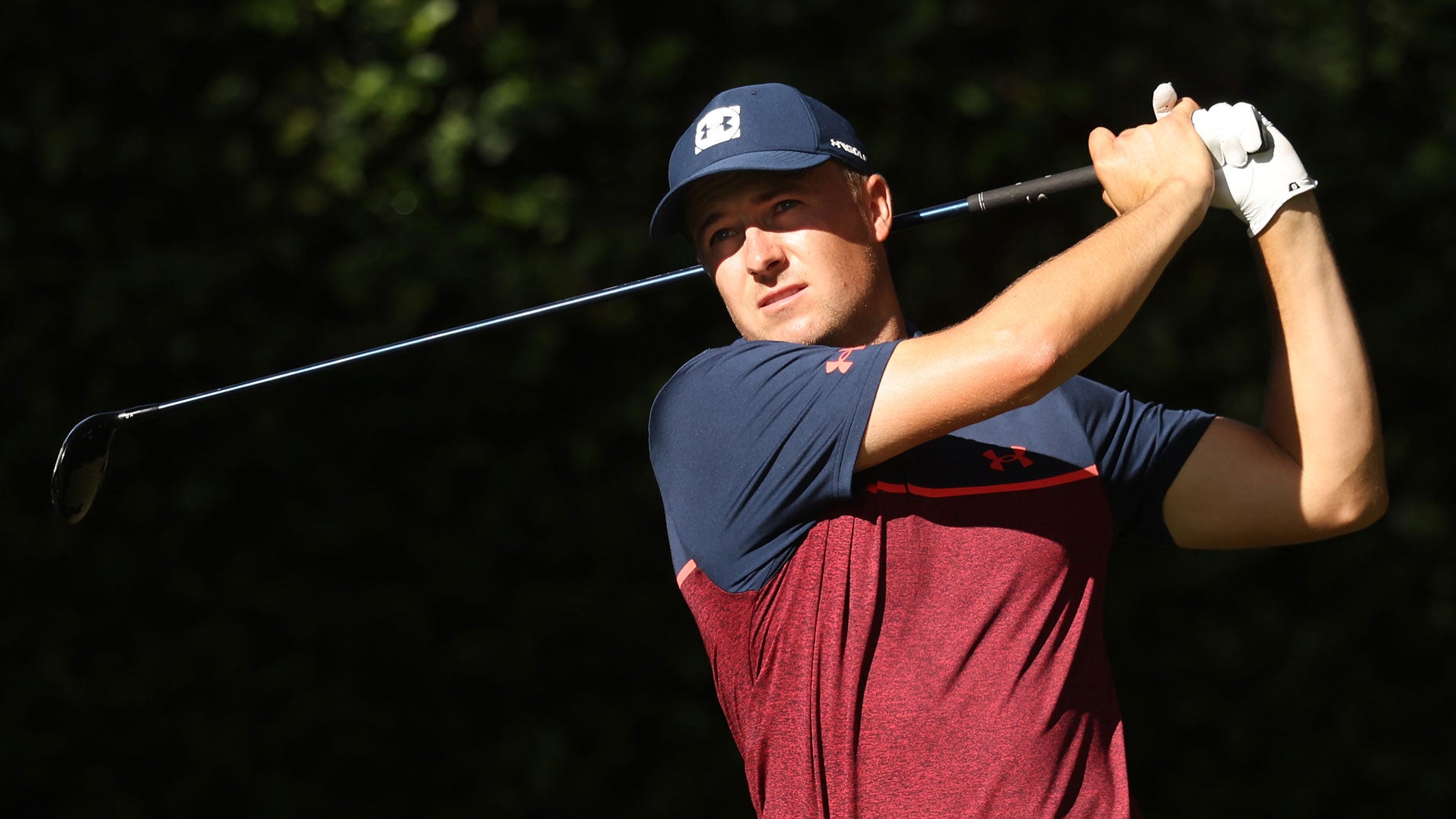Jordan Spieth, from 2013 to 2017, won 11 times on the PGA Tour and twice internationally, including three majors. He spent 26 weeks as the world’s No. 1 player.
Spieth’s now 85th. He hasn’t won since the 2017 Open Championship.
He can say why.
“I kind of got to where I was swinging behind me instead of in front of me,” Spieth said this week on the Gravy & the Sleeze show on SiriusXM PGA Tour Radio. “What that means is I just kind of get — that right elbow just got going a little wild on me. And so it could go up and go back behind my torso.
“What I didn’t realize I did so well for a number of years is being able to swing in front of my body, pretty much taking it back and through. It just kind of gradually started getting more and more behind me, and, all of a sudden, I found myself late into the ball, and from there, you just can’t play consistent golf — you’re relying too much on your hands at impact. It just becomes a significant challenge through the bag, and obviously as you go up the bag, you’re one or two degrees off becomes way more widespread.”
Easier said than swung.
Spieth estimated that he’s hit “however many tens of thousands of golf balls kind of the wrong way.” As he continues to work with coach Cam McCormick, Spieth estimated that he’ll need to hit “about that many to get stuff back.”
“It’s been a difficult process, to be honest,” Spieth said on the show hosted by Colt Knost and Drew Stoltz, who also host GOLF’s Subpar podcast. “It’s been really tough because I’ve always been somebody who likes having … end range of motion, where you feel like you can do something to the max and it’s not too much, and I’m almost trying to go the other direction and not go — I’m trying to keep things from moving as far back.
“I got really a lot more mobile and flexible over the last few years, and, in some ways, that’s great as far as power, without having to try to speed things up. But in other places of the game, I’ve kind of taken stuff a little too far on accident.”
As he mentioned, it’s affected his entire game. During the 2015 PGA Tour season, when he won the Masters and U.S. Open, Spieth ranked 15th in Strokes Gained: Off the Tee, 11th in Approach the Green, seventh in Around the Green, ninth in Putting, fourth in Tee to Green and second in Strokes Gained: Total. Last season, he was 165th, 97th, 19th, 105th, 90th and 99th.
Spieth’s work, he admits, has been as much mental as physical. He said he’s been a “feel player” the majority of his golfing career. Now, he’s a bit more fastidious.
“My golf I.Q., as far as if you asked me to instruct you on your golf swing, is probably as low as anybody’s, and I think that was a really good thing,” Spieth said. “And then once you get off and start taking a dive into what those mechanical things are, you got to get educated the right way.
“It’s almost like guys are on one end of the spectrum or the other. …There’s not necessarily a right or wrong there, but I feel like if you got be on one end of the spectrum or the other, if you’re in between, you’re kind of stuck — should I know more, but should I know less? I think, as a whole, I’d rather be just go out and play, but now I think I’m moving towards getting that really good grasp of knowledge on the way everything works that could be beneficial in the long run. So trying to make that move right now and just understand what I did so well, but I didn’t really know why and get back to doing it.”
